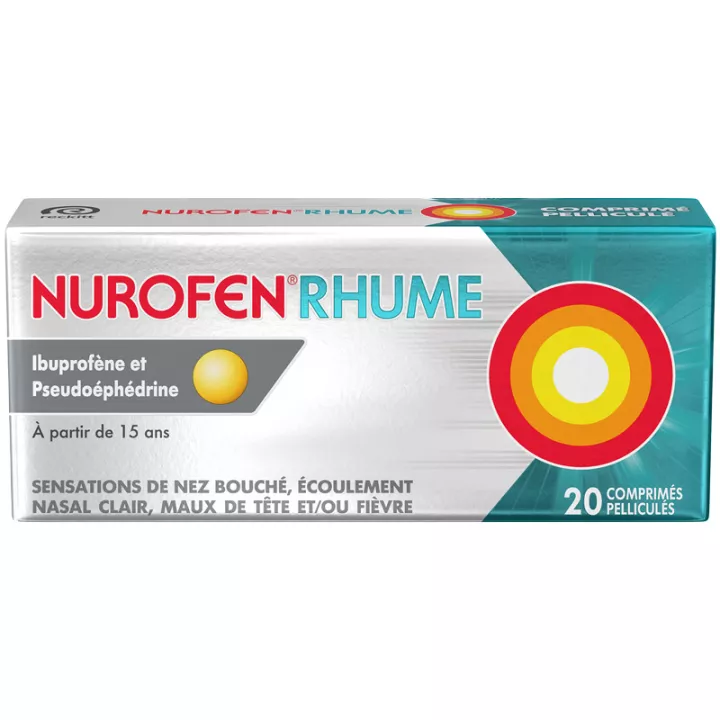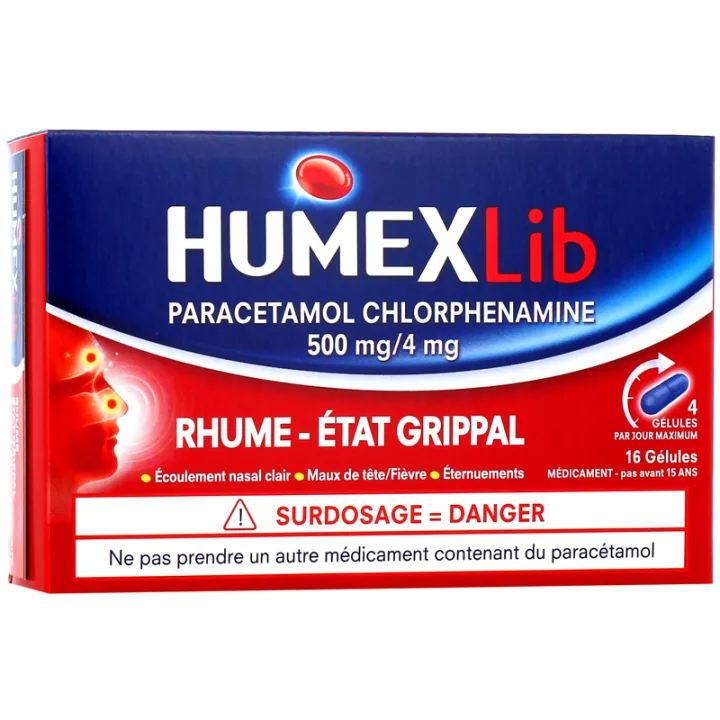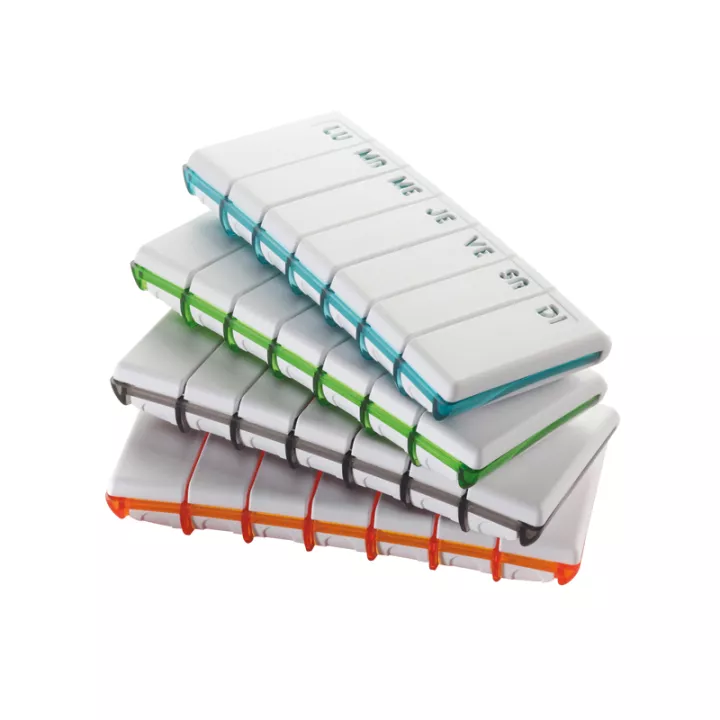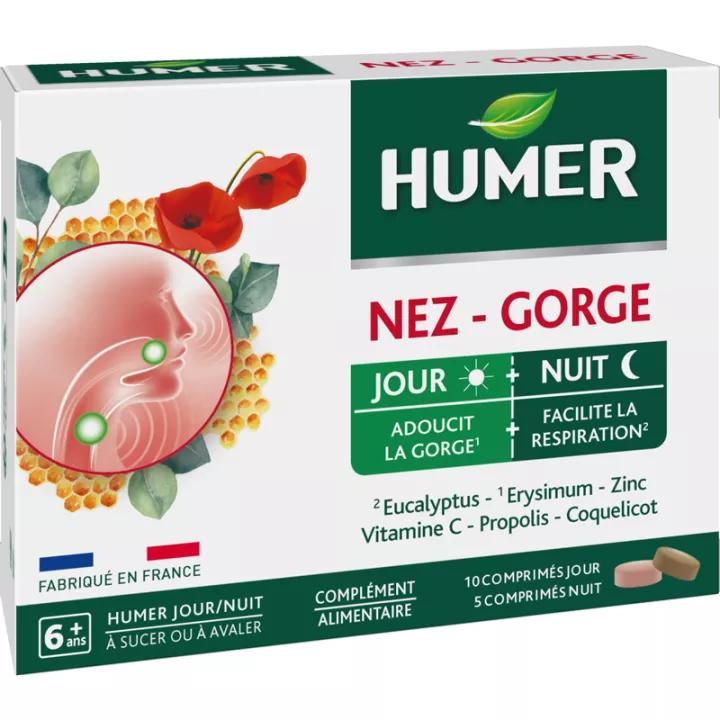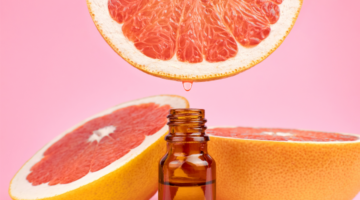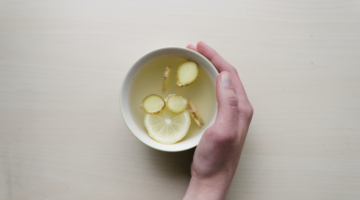NOTICE
ANSM - Last updated: 17/08/2017
Name of the medicinal product
NUROFEN RHEUME, film-coated tablet
Ibuprofen, pseudoephedrine
framed
Read this leaflet carefully before you start taking this medicine. It contains important information for you.
You should always take this medication exactly as prescribed in this leaflet or by your doctor or pharmacist.
· Keep this leaflet. You might need to read it again.
· Ask your pharmacist for advice or information.
· If you experience any side effects, talk to your doctor or pharmacist. This also applies to any side effects not mentioned in this leaflet. See section 4.
· You should contact your doctor if you experience no improvement or feel less well after:
3 days in case of fever and over 5 days in case of pain in adults.
Do not use this medication for children.
What is in this leaflet?
1. What is NUROFEN RHUME and in which cases it is used?
2. What information should be known before taking NUROFEN RHUME?
3. How to take NUROFEN RHUME?
4. What are the possible side effects?
5. How to store NUROFEN RHUME?
6. Package contents and other information.
1. WHAT IS NUROFEN CHEMICAL AND IN WHAT CASES IS IT USED?
OTHER DRUGS IN ASSOCIATION - ATC code: R05X
This drug contains a non-steroidal anti-inflammatory drug, ibuprofen , and a vasoconstrictor, pseudoephedrine.
It is indicated in the treatment during the colds of the adult and the adolescent of more than 15 years:
· stuffy nose sensations,
· clear nasal discharge,
· headache and / or fever.
2. BEFORE YOU TAKE NUROFEN RHUME?
Never take NUROFEN RHUME, film-coated tablets, in the following cases:
· child under 15 years of age,
· during pregnancy,
· if you are breastfeeding,
· history of allergy, shortness of breath or asthma, runny nose, swelling or urticaria triggered by the use of this drug or a related drug, including other non-steroidal anti-inflammatory drugs, acetylsalicylic acid (aspine )
· antecedent allergy to the other constituents of the tablet,
· history of gastrointestinal bleeding or ulcers associated with previous NSAID treatments,
· ulceration or bleeding of the stomach or intestine in progress or recurrence,
· gastrointestinal haemorrhage, cerebral hemorrhage or other ongoing hemorrhage,
· severe liver disease,
· severe kidney disease,
· severe or poorly balanced arterial hypertension through treatment,
· if you have had a stroke,
· severe heart disease (coronary heart disease),
· certain forms of glaucoma (increased pressure in the eye),
· difficulty passing urine of prostatic or other origin,
· convulsions old or recent,
· systemic lupus erythematosus,
· In combination with non-selective MAOIs or within 15 days of discontinuation due to the risk of paroxysmal hypertension and potentially fatal hyperthermia.
· In combination with other indirect sympathomimetics, vasoconstrictors intended to relieve congestion of the nose whether administered orally or nasally (phenylpropanolamine, phenylephrine (alias neosynéphrine), pseudoephedrine, ephedrine ...) and methylphenidate because of the risk of vasoconstriction and / or of hypertensive outbreaks.
· In combination with alpha sympathomimetics, vasoconstrictors intended to decongest the nose whether they are administered orally or nasally (etilefrin, midodrine, naphazoline, oxymetazoline, phenylephrine, synephrine, tetrazoline, tuaminoheptane, tymazoline) risk of vasoconstriction and / or hypertensive outbreaks.
In general, the combination of two decongestants is contraindicated, whatever the route of administration (oral and / or nasal): such an association is unnecessary and dangerous and corresponds to misuse.
You should not use this medication unless you are advised to do so by your doctor during pregnancy.
IN CASE OF DOUBT, IT IS ESSENTIAL TO REQUEST THE NOTICE OF YOUR DOCTOR OR
OF YOUR PHARMACIST.
Warnings and Precautions
Take special care with NUROFEN RHUME, film-coated tablet:
Special warnings
This medication contains an azo dye (E110) and may cause allergic reactions.
Due to the presence of pseudoephedrine
DO NOT LEAVE THIS MEDICINE FOR CHILDREN.
· It is imperative to strictly observe the dosage, the duration of treatment of 5 days, and the contraindications
· In case of overdosage or mistakenly taking too high a dose, immediately notify a doctor.
· During treatment, if there is a feeling of acceleration of the heartbeat, palpitations, onset or increase of headache, nausea, behavioral disturbances, hallucinations, agitation or sleep disorder, stop treatment and contact your doctor immediately.
· PREVENT YOUR DOCTOR, if you suffer:
o high blood pressure,
o cardiac disorders, hyperthyroidism (hyperfunction of the thyroid gland),
o personality disorders,
o of diabetes,
o of prostate hypertrophy
o of pheochromocytoma (adrenal gland disease)
· PREVENT YOUR DOCTOR, if you take:
o a selective MAO-A (iproniazide)
o a treatment containing an alkaloid of rye ergot:
§ dopaminergic, such as bromocriptine, cabergoline, lisuride or pergolide (eg, antiparkinsonian)
§ vasoconstrictor, such as dihydroergotamine, ergotamine, methylergometrine, methysergide), (for example an antimigraine)
o of linezolid
o a treatment for hypertension
Due to the presence of ibuprofen
In high doses, greater than 1200 mg / day, this drug has anti-inflammatory properties and can cause serious disadvantages that are observed with non-steroidal anti-inflammatory drugs.
Take special care with NUROFEN RUM:
· If you suffer from severe skin reactions such as exfoliative dermatitis, Stevens-Johnson's syndrome, epidermal toxic necrosis, skin lesions (lupus erythematosus or mixed connective tissue disease). The use of NUROFEN RHUME should be discontinued immediately after the first signs of skin rash, mucosal lesions or any other signs of allergic reactions.
· If you have liver problems
· If you have or have ever had an intestinal disease (ulcerative colitis or Crohn's disease).
Do not exceed recommended dosage or treatment time.
Anti-inflammatory / analgesic drugs such as ibuprofen are likely to be associated with a slightly increased risk of heart attack or stroke, especially when used at high doses. Do not exceed recommended dosage or treatment time.
Discuss your treatment with your doctor or pharmacist before taking NUROFEN RHUME if you:
- have heart problems, heart failure, angina (chest pain) or have had a heart attack, surgical bypass, peripheral arterial disease (poor circulation in the legs or feet due to narrowed arteries or blocked) or any type of stroke (including "mini-strokes" or transient ischemic attacks (TIAs)),
- have high blood pressure, diabetes, high cholesterol, a family history of heart disease or stroke, or if you are a smoker.
If you are a woman, NUROFEN RUMUM, film-coated tablet can alter your fertility. Its use is not recommended in women who wish to conceive a child. For women who have reproductive difficulties or who are undergoing reproductive function tests, please tell your doctor or pharmacist before taking NUROFEN RHUME, film-coated tablets.
Elderly patients have a higher risk of adverse effects, particularly for gastrointestinal haemorrhage, ulcers and perforations. Renal, hepatic and cardiac functions should be closely monitored. The dosage should be as low as possible for the shortest time needed to relieve symptoms.
BEFORE YOU USE THIS MEDICINE, CONSULT YOUR DOCTOR IN CASE:
· a history of asthma associated with chronic rhinitis, chronic sinusitis or polyps in the nose. The administration of this specialty may lead to an asthma attack, especially in certain people who are allergic to acetylsalicylic acid (aspirin) or to a non-steroidal anti-inflammatory drug ( see section "Never take NUROFEN RHEUME, film-coated tablets below " ),
· coagulation disorders, and anticoagulant therapy. This medication may cause severe gastrointestinal symptoms,
· digestive antecedents (hiatal hernia, digestive hemorrhage, old stomach or duodenal ulcer), Crohn's disease.
· heart disease, liver or kidney disease,
· of varicella. This medication is not recommended because of exceptional severe infections of the skin,
· concomitant treatment with other drugs that increase the risk of peptic ulcer or haemorrhage, eg, oral corticosteroids, antidepressants (SSRIs, ie, Selective Serotonin Recapture Inhibitors), medicines preventing the formation of blood clots such as aspirin or anticoagulants such as warfarin. If you are in any of these conditions, talk to your doctor before taking NUROFEN RHEUME, film-coated tablet ( see section "Take or use other medicines" ),
· concomitant therapy with methotrexate at doses greater than 20 mg per week or with pemetrexed ( see section "Take or use other medicinal products" ).
DURING TREATMENT, IN CASE OF:
· of vision problems, PREVENT YOUR DOCTOR,
· gastrointestinal haemorrhage (discharge from the mouth or stool, stool coloration in black), STOP TREATMENT AND IMMEDIATELY CONTACT AN EMERGENCY MEDICAL OR MEDICAL SERVICE,
· of appearances of cutaneous or mucosal signs that resemble a burn (redness with bubbles or blisters, ulcerations), STOP THE TREATMENT AND CONTACT IMMEDIATELY A DOCTOR OR AN EMERGENCY MEDICAL SERVICE,
· of allergy-related signs including asthma attack or sudden swelling of the face and neck ( see section "What are the possible side effects?" ), STOP TREATMENT AND CONTACT IMMEDIATELY A DOCTOR OR A MEDICAL SERVICE EMERGENCY.
There is a risk of renal failure in dehydrated patients and adolescents.
Precautions for use
· In case of: purulent nasal discharge, persistence of fever, absence of improvement after 5 days of treatment, CONSULT YOUR DOCTOR.
|
This medicine contains a non-steroidal anti-inflammatory drug: ibuprofen and a vasoconstrictor: pseudoephedrine.
You should not take other medicines containing non-steroidal anti-inflammatory drugs and / or aspirin and / or pseudoephedrine together with this medication.
Read carefully the leaflets for other medicines you are taking to ensure that there are no non-steroidal anti-inflammatory drugs and / or aspirin and / or pseudoephedrine.
|
IN CASE OF DOUBT, DO NOT HESITATE TO ASK FOR THE OPINION OF YOUR DOCTOR OR YOUR PHARMACIST.
Other medicines and NUROFEN RUMUM, film-coated tablet
Inform your doctor or pharmacist if you are taking or have recently taken or may take any other medicines.
Always inform your doctor, dentist or pharmacist if you are taking any of the following medicines in addition to NUROFEN RHEUME, film-coated tablet:
Due to the presence of pseudoephedrine
This medicine contains a vasoconstrictor: pseudoephedrine
This medication should not be used in combination with:
· Other oral or nasal vasoconstrictors (phenylpropanolamine, phenylephrine (alias neosynhephrine), pseudoephedrine, ephedrine, methylphenidate, elelefrin, midodrine, naphazoline, oxymetazoline, phenylephrine, synephrine, tetrazoline, tuaminoheptane, tymazoline);
· A non-selective MAOI (iproniazide) and / or reversible monoamine oxidase A inhibitors.
It is not recommended to use this medication if you are already treated:
· By a selective MAO-A drug, prescribed drug in some depressive states
· and / or other dopaminergic or vasoconstrictor drugs such as bromocriptine, cabergoline, lisuride, pergolide or dihydroergotamine, ergotamine, methylergometrine, methysergide, drugs prescribed to treat certain neurological or endocrine disorders or migraines .
· By linezolid.
· Cardiac glicosides,
· By oxytocin,
· Anticholinergics including tricyclic antidepressants
Due to the presence of ibuprofen
Always inform your doctor, dentist or pharmacist if you are taking any of the following medicines in addition to NUROFEN RHEUME, film-coated tablet:
· aspirin (acetylsalicylic acid) or other non-steroidal anti-inflammatory drugs
· corticosteroids
· oral anticoagulants such as warfarin, injectable heparin, antiplatelet agents or other thrombolytics such as ticlopidine
· lithium
· methotrexate
· angiotensin converting enzyme inhibitors, diuretics, beta-blockers and angiotensin II antagonists
· some antidepressants (selective serotonin reuptake inhibitors)
· pemetrexed
· ciclosporin, tacrolimus.
· Cardiac glicosides, mifepristone, zidovudine, quinoline antibiotics
IN CASE OF DOUBT, DO NOT HESITATE TO ASK FOR THE OPINION OF YOUR DOCTOR OR YOUR PHARMACIST.
NUROFEN CHEMIN, film-coated tablet with food and beverages and alcohol
Not applicable.
Pregnancy, breast-feeding and fertility
If you are pregnant or breastfeeding, think you may be pregnant or plan a pregnancy, ask your doctor or pharmacist for advice before taking this medicine.
Pregnancy
This medication is contraindicated during pregnancy.
feeding
Due to possible adverse effects in infants, taking this medication is contraindicated if you are breast-feeding.
Female fertility
NUROFEN RUMUM belongs to the class of medicines that can alter female fertility. However, this effect is reversible upon discontinuation of treatment. Avoid taking this medication if you are trying to get pregnant.
Ask your doctor or pharmacist for advice before taking any medicine.
Driving and using machines
In rare cases, taking this medicine may cause dizziness and blurred vision.
Pseudoephedrine may induce a positive reaction from tests performed during doping controls.
3. HOW TO TAKE NUROFEN RHUME?
Always take this medication exactly as prescribed in this leaflet or as directed by your doctor or pharmacist. Check with your doctor or pharmacist if in doubt.
Dosage
RESERVED FOR THE ADULT, THE AGED PERSON AND THE ADOLESCENT OVER 15 YEARS
1 tablet per dose, to be renewed if necessary after 6 hours, without exceeding 4 tablets per day.
In case of more intense symptoms, take 2 tablets per dose, not exceeding 4 tablets per day.
IN CASE OF DOUBT, ASK FOR ADVICE TO YOUR DOCTOR OR YOUR PHARMACIST.
Method and route of administration
Oral use.
The tablets should be swallowed as they are with a large glass of water, preferably during meals.
Frequency of Administration
Space the outlets for at least 6 hours.
Duration of treatment
This medication should be used only for a short period of time.
The maximum duration of treatment is 5 days. If symptoms persist more than 5 days or fever more than 3 days , or if they worsen or if another disorder occurs, take a medical opinion.
If you feel that the effect of NUROFEN RHUME, a film-coated tablet, is too strong or too weak, talk to your doctor or pharmacist.
In children and adolescents
Not applicable.
If you take more NUROFEN COLD than you should :
In case of accidental overdose or poisoning, STOP TREATMENT AND QUICKLY CONSULT A DOCTOR .
Seek immediate medical attention.
Poisoning with ibuprofen may cause signs of nausea, vomiting, discomfort, stomach upset, diarrhea, tinnitus, headache, blood in the stool or blood in the vomit ( gastrointestinal bleeding), dizziness, drowsiness, confusion, confusion, or coma. Occasionally patients may develop convulsions, delirium, hallucinations, restlessness, behavioral problems, insomnia, mydriasis and strokes.
In cases of more severe poisoning, metabolic acidosis, bleeding, acute renal failure, liver damage may occur. A worsening of asthma in asthmatics is possible.
Pseudoephedrine poisoning may cause the following signs: central nervous system disorders and cardiac pacing, including irritability, restlessness, tremors, palpitations, seizures, urinary retention, hypertension, difficulty in urinating, nausea, vomiting and heart problems.
If you have any further questions on the use of this medication, talk to your doctor or pharmacist.
If you forget to take NUROFEN RHUME :
Do not take a double dose to make up for the single dose that you have forgotten to take.
If you have any further questions on the use of this medication, ask your doctor or pharmacist.
4. WHAT ARE POSSIBLE SIDE EFFECTS?
Like all medicines, this medicine may cause side effects, although not everybody gets them.
Side effects can be reduced by using the lowest dose for the shortest period of time necessary to treat symptoms. Even if side effects are uncommon, you may experience one of the known side effects of NSAIDs or pseudoephedrine.
If this happens, or if you have any questions, stop taking this medication and talk to your doctor. Seniors who use this product are at a greater risk of developing problems associated with side effects.
Tell your doctor if you experience any of the following side effects
· Uncommon: (May affect up to 1 in 100 people)
o Hypersensitivity reactions with urticaria and itching.
o Headaches, tremors
o Abdominal pain, nausea and dyspepsia
o Various rashes
· Rare: (can affect up to 1 in 1,000 people):
o Diarrhea, flatulence (gas), constipation and vomiting
· Very rare: (can affect up to 1 in 10,000 people)
o Problems in the production of blood cells. The first signs are fever, sore throat, superficial oral ulcers, flu-like symptoms, severe fatigue, nose and skin bleeding, unexplained bruising. In these cases, you should stop treatment immediately and see a doctor. Any self-medication with analgesics or medicines that reduce fever (antipyretic drugs) should not be taken.
o Severe hypersensitivity reactions. Symptoms include swelling of the face, tongue and larynx, dyspnea, tachycardia and hypotension (anaphylactic shock Edema of Quincke, severe shock)
o Dizziness or symptoms of aseptic meningitis with neck stiffness, headache, nausea, vomiting, fever or disorientation were observed when using ibuprofen. Patients with autoimmune diseases (systemic lupus erythematosus, mixed connective tissue diseases) are more likely to be affected. Contact a doctor immediately if these symptoms occur.
o Peptic ulcers, gastrointestinal perforation or hemorrhage, inflammation of the mucosa of the mouth and ulceration, gastritis, loss of blood in the stomach and / or intestine.
o Liver dysfunction, liver damage (early signs may be discolouration of the skin), especially during long-term treatment, liver failure, acute liver inflammation (hepatitis).
o Reduced urination and swelling (especially in patients with high blood pressure or decreased renal function), swelling (edema) and turbid urine (nephrotic syndrome), inflammatory diseases of the kidney (interstitial nephritis) which may lead to insufficiency acute renal function. If any of the above symptoms occur or if you have a feeling of general impairment, stop taking NUROFEN RHUME and see your doctor right away as this may be the first sign of impaired renal function or insufficiency kidney.
o Serious forms of skin reactions such as rashes with redness and blisters (eg, Stevens-Johnson syndrome, erythema multiforme, necrolysis / epidermal toxic Lyell syndrome).
o Acute renal insufficiency, oliguria.
o Decreased hemoglobin levels, increased transaminases
· Frequency not known: (can not be estimated from available data)
o Severe skin infection and soft tissue complications during chickenpox
o Decreased appetite
o Central nervous system disorders such as insomnia, restlessness, hallucination, irritability, anxiety, nervousness, behavioral disorders
o Convulsions, cerebral hemorrhagic infarction
o Glaucoma by angle closure, visual disturbances
o Heart failure, heart attack and swelling of the face or hands (edema), tachycardia, arrhythmia, palpitations
o High Blood Pressure
o Reactivity of the respiratory tract including asthma, bronchospasm or dyspnea, nasal dryness
o Dry mouth, aggravation of existing intestinal disease (ulcerative colitis or Crohn's disease)
o Acute liver inflammation (hepatitis)
o Excessive sweating
o Urinary retention, difficulty urinating
Declaration of side effects
If you experience any side effects, talk to your doctor or pharmacist. This also applies to any side effects not mentioned in this leaflet. You can also report adverse reactions directly through the national reporting system:
National Agency for the Safety of Medicines and Health Products (ANSM) and network of Regional Centers for Pharmacovigilance
By reporting adverse reactions, you are helping to provide more information about the safety of the drug.
5. HOW TO STORE NUROFEN RHUME?
Keep this medicine out of the reach and sight of children.
Do not use this medicine after the expiry date which is stated on the package. The expiry date refers to the last day of that month.
Keep this medicine at a temperature below 25 ° C and away from moisture.
Do not throw any medicines into drains or rubbish. Ask your pharmacist to remove any medications you are no longer using. These measures will help protect the environment.
6. PACKAGE CONTENTS AND OTHER INFORMATION
What NUROFEN RHUME contains
The active substance is :
Ibuprofen ................................................. .................................................. 200 mg
Pseudoephedrine hydrochloride ............................................... ...................................... 30.00 mg
For a tablet.
The other components are:
· Microcrystalline cellulose, croscarmellose sodium, povidone, calcium phosphate, magnesium stearate, hypromellose, talc, yellow mastercote.
What NUROFEN RHUME looks like and contents of the pack
This medication is in the form of film-coated tablets. Box of 20.
Marketing Authorization Holder
RECKITT BENCKISER HEALTHCARE FRANCE
38 RUE VICTOR BASCH
CS 11018
91305 MASSY CEDEX
Marketing Authorization Operator
RECKITT BENCKISER HEALTHCARE FRANCE
38 RUE VICTOR BASCH
CS 11018
91305 MASSY CEDEX
Maker
RECKITT BENCKISER HEALTHCARE INTERNATIONAL LIMITED
NOTTINGHAM SITE
THANE ROAD, NOTTINGHAM
NOTTINGHAMSHIRE, NG 90 2 DB
UK
Names of the medicinal product in the Member States of the European Economic Area
Not applicable.
The last date on which this leaflet was revised is:
[to be completed later by the holder]
{MM / YYYY}> <{YYYY month}.
Other
Detailed information on this medicine is available on the ANSM website (France).
Health Education Council
"WHAT TO DO IN THE EVENT OF FEVER":
The normal temperature of the body varies from one individual to another and is between 36 ° 5 and 37 ° 5. An increase of more than 0 ° 8 is considered a fever.
In adults : if the disorder is too troublesome, you can take a medicine that contains ibuprofen in the recommended dosage.
With this medication, the fever should drop rapidly. Nevertheless ,
· if other signs appear (such as a rash),
· if the temperature persists for more than 3 days or if it worsens,
· if the headache becomes violent, or in case of vomiting,
CONSULT YOUR DOCTOR IMMEDIATELY.
" WHAT TO DO IN CASE OF PAIN ":
· In the absence of improvement after 5 days of treatment,
· If the pain returns regularly
· If they are accompanied by fever,
· If they wake you up at night,
CONSULT YOUR DOCTOR IMMEDIATELY.

